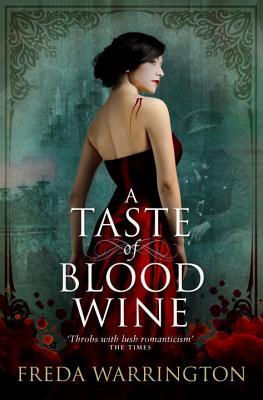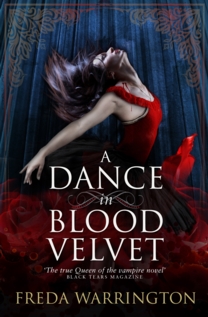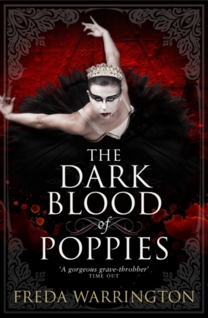Guest Post: Merits of Fantasy versus Real-life
Fiction
Fantasy fiction versus mainstream fiction? That’s what I’ve
been asked to talk about, and I like a challenge. But what is this, a boxing
match to prove which one’s better? I don’t think it’s possible to judge but, as
a fantasy writer, I am a little bit biased…
 When I was a lot younger, there was considerable snobbery
against fantasy fiction. From teachers and from the media, I received the clear
message that fantasy, science fiction, any kind of genre in fact – maybe not so
much crime thrillers, but definitely horror and romance – was inferior to
Literature. It was common to hear reviewers on Radio 4 saying things like, “I
have a problem with science fiction.” Many times you would even hear them give a
condescending little snigger when they had to talk about a fantasy
novel.
When I was a lot younger, there was considerable snobbery
against fantasy fiction. From teachers and from the media, I received the clear
message that fantasy, science fiction, any kind of genre in fact – maybe not so
much crime thrillers, but definitely horror and romance – was inferior to
Literature. It was common to hear reviewers on Radio 4 saying things like, “I
have a problem with science fiction.” Many times you would even hear them give a
condescending little snigger when they had to talk about a fantasy
novel.
My blood would boil! I would think, “How are you even qualified to dismiss this
book when you clearly haven’t the faintest understanding of what it is you’re
reading?”
Critics who scorn fantasy and science fiction are
missing the point. They don’t understand that fantasy fiction, like any fiction,
is a journey through an inner landscape that we must explore. The power
of fantasy is to distil big life issues into pure metaphorical form and come at
it head-on, without the complications (or indeed the libel laws) of real life
getting in the way. This noble lineage goes back to Gilgamesh and Homer. Modern
fantasy writers are creating myth, and myth has a central and serious purpose.
As the scholar Joseph Campbell said about the hero’s journey, “I think that what
we’re seeking is an experience of being alive, so that our life experiences on
the purely physical plane will have resonances within our own innermost being
and reality, so that we actually feel the rapture of being alive… When we quit
thinking primarily about ourselves and our own self-preservation, we undergo a
truly heroic transformation of consciousness.” The adventure of the hero is the
adventure of being alive.
As soon as I started writing seriously (in my early teens) I
had to write fantasy. My imagination
was fired by magical quests and heroic self-sacrifice. Seeking a publisher/ agent in the late
1970s, I was led to believe that my dream was hopeless – you could only be
published if a) you personally knew a publisher or b) you were already famous
for something else – and certainly not if you wrote that fantasy nonsense. And
yet, find a publisher I did! My first manuscript was flawed, but it must have
had something.
I think that what it had was atmosphere.
Thing is, and this is stating the obvious, all works of
fiction are works of the imagination. A straight-up novel of everyday events
might be set in a coal-mining community, in the war, among the English gentry or
in the great American West – but it still needs to create its own atmosphere,
mood, tone of voice. And to create that atmosphere is to build a world, just as fantasy writers
do.
 There’s no right or wrong about this. It’s pretty obvious
what distinguishes reality from fantasy: the former contains no magic, the
latter accepts different rules about how the world works – perhaps sorcery,
elves, dragons, ghosts, vampires, otherworlds. But fantasy does not have to
equal child-like or superficial. On the contrary, it gives us more scope to let
our protagonists explore deep into questions of morality, heroism and
self-sacrifice.
There’s no right or wrong about this. It’s pretty obvious
what distinguishes reality from fantasy: the former contains no magic, the
latter accepts different rules about how the world works – perhaps sorcery,
elves, dragons, ghosts, vampires, otherworlds. But fantasy does not have to
equal child-like or superficial. On the contrary, it gives us more scope to let
our protagonists explore deep into questions of morality, heroism and
self-sacrifice.
Was not The Lord of the Rings inspired by the events of the
First World War? And my first published novel, A Blackbird in Silver, was driven
by my fear of the Cold War and nuclear annihilation. I couldn’t do anything
about it in real life, but I could send my heroes to battle a terrible,
indestructible Serpent. When I wrote my contemporary fantasy Elfland, I wanted
my characters to live in a real-life setting with everyday problems, but also
have access to their own Otherworld, where stranger things lurk. So they’re each
trying to balance two lives, and when the problems overlap, that’s when the
trouble really starts…
So mainstream = no magic? Except that… sometimes magical
things do happen in everyday life. We’ve all got tales of amazing coincidences,
ghostly apparitions, events so crazy that people say, “You couldn’t make it up.”
The moment a faerie pops up in a straight novel about, let’s say, a family
falling apart due to the financial recession – you’ve got a fantasy novel
instead. Or have you? Because (from a writer’s point of view) you can use all
shades of ambiguity about whether the aforementioned faerie is real, or a
hallucination due to a character having a nervous breakdown. Often you can leave
it to the reader to decide. That’s part of the enjoyment of both writing and
reading.
We can make a further distinction between mainstream, genre
and literary fiction. Mainstream novels, while nothing weird may happen in them,
are still expected to have a popular appeal, and that means a strong narrative
structure with beginning, middle, end, loose ends tied up and a satisfying
conclusion. Literary fiction, by contrast, seems to have a free pass to break
all those rules. It doesn’t have to have a Plot. Its ending may be ambiguous or
incomprehensible. Such works may be loved or loathed in equal measure but… oh
look. Along comes Magic Realism to blur the boundaries again! It is possible to
be literary and fantastical at the same time – but comparing Angela Carter to
David Eddings is like comparing an artichoke to a tricycle.
For a long time it has appeared that SF and fantasy could be
taken seriously only if a “proper” writer tried their hand at it – PD James,
Doris Lessing, Margaret Atwood for example – and then it would be considered as
Literature and not SF at all, even if they recycled an idea that was already
well-worn in SF circles. Literary writers are allowed to play with fantasy and
it’s called Magic Realism. As Terry Pratchett put it (forgive me if I misquote),
“Magic realism is a polite way of saying you write fantasy.” And we’ve seen that
the term “fantasy” is a very big rainbow umbrella indeed.
 I’ll admit one thing. I’m not so much into Epic Fantasy
these days (even though I’ve written it, eg. The Amber Citadel) – perhaps I
picked up too many bad Tolkien clones, in a desperate search for something as
good as the original. I know there are good ones and less good ones out there,
but every book blurb seems to read the same – sorcerers, thieves, assassins,
princes, elves, invasion by evil race – and I often get the impression you could
use the same blurb for every book and just cut n’ paste the names! I do,
however, enjoy a good psychological thriller and, if I’m book-hunting at the
airport, I’m more likely to grab a novel by Gillian Flynn than by Joe
Abercrombie, however highly acclaimed the latter is. I do understand why people
may find real-world adventures more accessible than invented-world
quests.
I’ll admit one thing. I’m not so much into Epic Fantasy
these days (even though I’ve written it, eg. The Amber Citadel) – perhaps I
picked up too many bad Tolkien clones, in a desperate search for something as
good as the original. I know there are good ones and less good ones out there,
but every book blurb seems to read the same – sorcerers, thieves, assassins,
princes, elves, invasion by evil race – and I often get the impression you could
use the same blurb for every book and just cut n’ paste the names! I do,
however, enjoy a good psychological thriller and, if I’m book-hunting at the
airport, I’m more likely to grab a novel by Gillian Flynn than by Joe
Abercrombie, however highly acclaimed the latter is. I do understand why people
may find real-world adventures more accessible than invented-world
quests.
Does this mean I’ve fallen prey to the very snobbery I’ve
been complaining about? I don’t think so. It just means I’m a bit jaded with
thick tomes full of swordfights. I will admit to a degree of snobbery, however,
because we all know that popularity does not equal quality. Sometimes it does,
but sometimes… well, let’s just say that however much I roll my eyes at “Fifty
Shades” (oops… I mistyped that as “Fifty Shags”…), if I had the chance to write
something that bad and yet make millions from it, all my principles would rocket
out of the window as I crouched over my red-hot keyboard… under a pseudonym, of
course.
These days, the snobbery has diminished considerably.
Newspapers even have a section for genre novels and manage to review them with a
straight face. Fantasy films and TV series are huge. The David Gemmell Legend
Awards were set up to give good fantasy writers the acclaim they deserve. With
the popularity of JK Rowling, Neil Gaiman, Philip Pullman, Ursula LeGuin, Robert
Holdstock, China Mieville, Ellen Kushner and too many more to name, you can no
longer argue that fantasy is just for adolescents – it’s for everyone.
-----------------------------------------
Freda Warrington, May 2014
Comments
Post a Comment